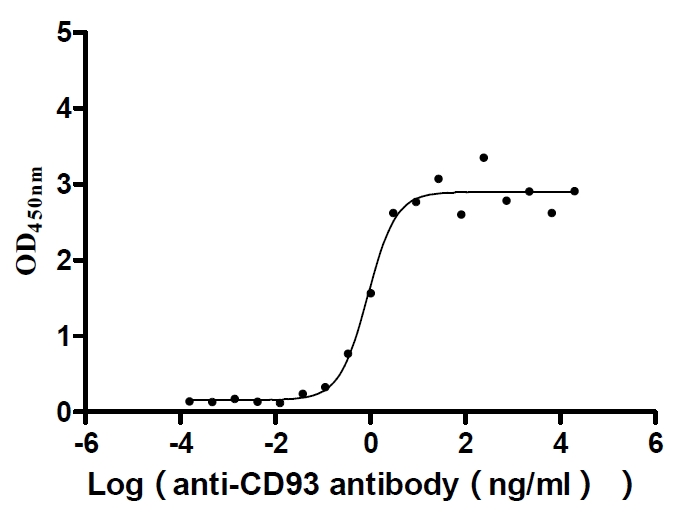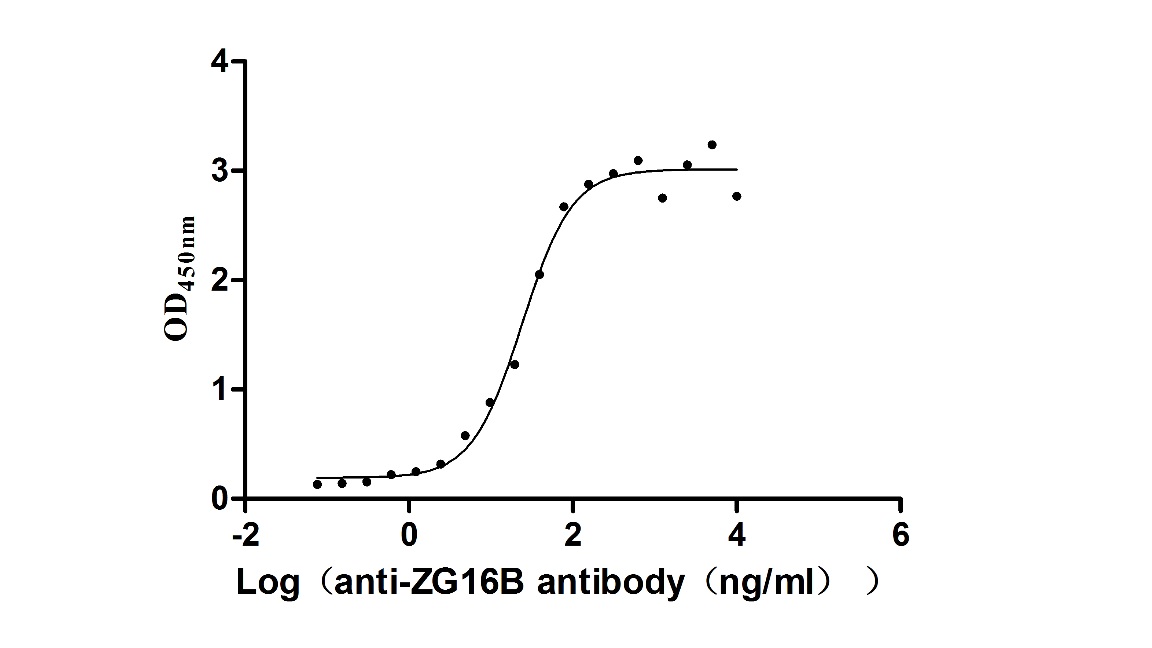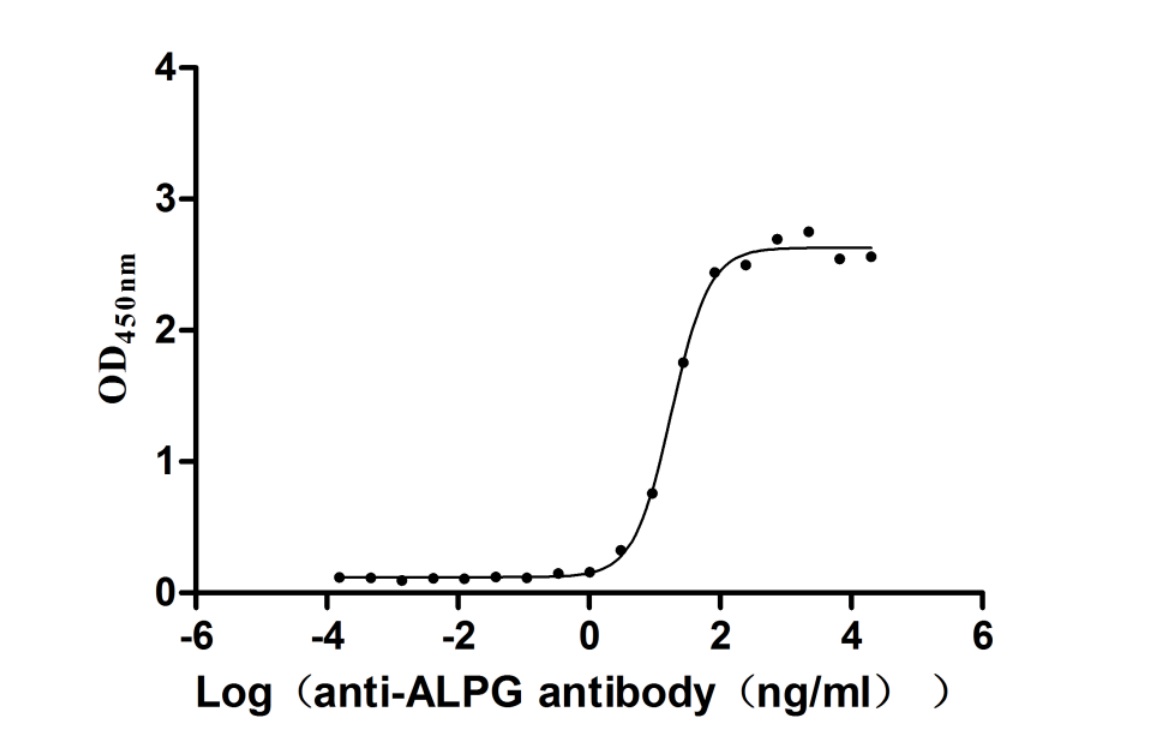Recombinant Mouse Iron-responsive element-binding protein 2 (Ireb2), partial
-
中文名称:小鼠Ireb2重组蛋白
-
货号:CSB-YP773964MO
-
规格:
-
来源:Yeast
-
其他:
-
中文名称:小鼠Ireb2重组蛋白
-
货号:CSB-EP773964MO
-
规格:
-
来源:E.coli
-
其他:
-
中文名称:小鼠Ireb2重组蛋白
-
货号:CSB-EP773964MO-B
-
规格:
-
来源:E.coli
-
共轭:Avi-tag Biotinylated
E. coli biotin ligase (BirA) is highly specific in covalently attaching biotin to the 15 amino acid AviTag peptide. This recombinant protein was biotinylated in vivo by AviTag-BirA technology, which method is BriA catalyzes amide linkage between the biotin and the specific lysine of the AviTag.
-
其他:
-
中文名称:小鼠Ireb2重组蛋白
-
货号:CSB-BP773964MO
-
规格:
-
来源:Baculovirus
-
其他:
-
中文名称:小鼠Ireb2重组蛋白
-
货号:CSB-MP773964MO
-
规格:
-
来源:Mammalian cell
-
其他:
产品详情
-
纯度:>85% (SDS-PAGE)
-
基因名:Ireb2
-
Uniprot No.:
-
别名:Ireb2; Irp2; Iron-responsive element-binding protein 2; IRE-BP 2; Iron regulatory protein 2; IRP2
-
种属:Mus musculus (Mouse)
-
蛋白长度:Partial
-
蛋白标签:Tag type will be determined during the manufacturing process.
The tag type will be determined during production process. If you have specified tag type, please tell us and we will develop the specified tag preferentially. -
产品提供形式:Lyophilized powder
Note: We will preferentially ship the format that we have in stock, however, if you have any special requirement for the format, please remark your requirement when placing the order, we will prepare according to your demand. -
复溶:We recommend that this vial be briefly centrifuged prior to opening to bring the contents to the bottom. Please reconstitute protein in deionized sterile water to a concentration of 0.1-1.0 mg/mL.We recommend to add 5-50% of glycerol (final concentration) and aliquot for long-term storage at -20℃/-80℃. Our default final concentration of glycerol is 50%. Customers could use it as reference.
-
储存条件:Store at -20°C/-80°C upon receipt, aliquoting is necessary for mutiple use. Avoid repeated freeze-thaw cycles.
-
保质期:The shelf life is related to many factors, storage state, buffer ingredients, storage temperature and the stability of the protein itself.
Generally, the shelf life of liquid form is 6 months at -20°C/-80°C. The shelf life of lyophilized form is 12 months at -20°C/-80°C. -
货期:Delivery time may differ from different purchasing way or location, please kindly consult your local distributors for specific delivery time.Note: All of our proteins are default shipped with normal blue ice packs, if you request to ship with dry ice, please communicate with us in advance and extra fees will be charged.
-
注意事项:Repeated freezing and thawing is not recommended. Store working aliquots at 4°C for up to one week.
-
Datasheet :Please contact us to get it.
靶点详情
-
功能:RNA-binding protein that binds to iron-responsive elements (IRES), which are stem-loop structures found in the 5'-UTR of ferritin, and delta aminolevulinic acid synthase mRNAs, and in the 3'-UTR of transferrin receptor mRNA. Binding to the IRE element in ferritin results in the repression of its mRNA translation. Binding of the protein to the transferrin receptor mRNA inhibits the degradation of this otherwise rapidly degraded mRNA.
-
基因功能参考文献:
- The Irp2(-/-) mice develop microcytic anemia, erythropoietic protoporphyria and a progressive neurological disorder, indicating that Irp2 has important functions in the nervous system and erythropoietic homeostasis PMID: 25771171
- Irp2 mRNA transcription is promoted by circadian clock genes, including BMAL1, and the CLOCK heterodimer. PMID: 26797126
- Irp2 increased mitochondrial iron loading and levels of cytochrome c oxidase, which led to mitochondrial dysfunction and subsequent experimental COPD. PMID: 26752519
- IRP1 and IRP2 mutant mice rapidly succumb to systemic infection with Salmonella Typhimurium, a pathogenic bacterium that multiplies within macrophages, with increased bacterial burdens in liver and spleen. PMID: 26190773
- aged Irp2-/- mice show marked iron deposition in white matter and in oligodendrocytes while iron content is significantly reduced in neurons. mice show impairments in locomotion, exploration, motor coordination/balance and nociception . PMID: 24896637
- misregulation of iron metabolism from loss of Irp2 causes lower motor neuronal degeneration with significant spinal cord axonopathy PMID: 22003390
- A wide network of mRNAs and proteins with iron-dependent regulation, IRP-dependent regulation, or both. PMID: 21940823
- The FBXL5-IRP2 axis is integral to control of iron metabolism in vivo. PMID: 21907140
- Iron regulatory protein 1 outcompetes iron regulatory protein 2 in regulating cellular iron homeostasis in response to nitric oxide. PMID: 21566147
- Mice lacking both IRP2 in their hepatocytes suffer from mitochondrial iron deficiency and dysfunction associated with alterations of the ISC and heme biosynthetic pathways, leading to liver failure and death. PMID: 20674864
- IRP2 binding activity reduces ferritin expression in the striatum after an intracerebral hemorrhage, preventing an optimal response to elevated local iron concentrations PMID: 20399759
- A mechanism is proposed by which iron may regulate copper levels in the brain, mediated by IRP2 and amyloid beta protein precursor. PMID: 19584448
- A comparative study of the roles of iron regulatory proteins 1 and 2 in regulating iron metabolism. PMID: 14726953
- targeted mutagenesis; mice that are homozygous for the correctly modified IRP1 or IRP2 alleles, respectively, display a strong reduction (90%, IRP1(-/-)) or nondetectable levels (IRP2(-/-)) of the targeted proteins PMID: 15208438
- IRP2 dominates regulation of iron homeostasis because it alone registers iron concentrations and modulates its RNA-binding activity at physiological oxygen tensions PMID: 15604406
- IRP2 mutations may be a cause of refractory microcytic anemia and bone marrow iron depletion in patients with normal transferrin saturations, elevated serum ferritins, elevated red cell protoporphyrin IX levels, and adult-onset neurodegeneration PMID: 15831703
- IRP2 has roles in body iron distribution and microcytosis PMID: 15956281
- examined the expression levels of iron regulatory proteins (IRPs), ferritins, and binding activities of IRPs to iron-responsive element (IRE) in scrapie-infected mice PMID: 17614197
- Data show that IRP2 are thus essential for intestinal function and organismal survival and coordinate the synthesis of key iron metabolism proteins in the duodenum. PMID: 18177727
- These results suggest that IRP2 binding activity increases the vulnerability of neurons to hemoglobin, possibly by reducing ferritin expression. Therapeutic strategies that target this regulatory mechanism may be beneficial after hemorrhagic CNS injuries PMID: 18571425
- IRP1 and IRP2 increase neuronal vulnerability to oxidative injury. PMID: 18655771
- Tempol protected IRP2(-/-) mice by disassembling the cytosolic iron-sulfur cluster of IRP1 and activating IRE binding activity PMID: 18685102
- the response of Irp1 (-/-) and Irp2 (-/-) mice to acute local inflammation is largely preserved PMID: 19533074
显示更多
收起更多
-
亚细胞定位:Cytoplasm.
-
蛋白家族:Aconitase/IPM isomerase family
-
数据库链接:
Most popular with customers
-
Recombinant Human Plexin-B1 (PLXNB1), partial (Active)
Express system: Mammalian cell
Species: Homo sapiens (Human)
-
Recombinant Human E3 ubiquitin-protein ligase ZNRF3 (ZNRF3), partial (Active)
Express system: Mammalian cell
Species: Homo sapiens (Human)
-
Recombinant Mouse Retinol-binding protein 4 (Rbp4) (Active)
Express system: Mammalian cell
Species: Mus musculus (Mouse)
-
Recombinant Mouse Claudin-18.2 (Cldn18.2)-VLPs (Active)
Express system: Mammalian cell
Species: Mus musculus (Mouse)
-
Recombinant Human Claudin-6 (CLDN6)-VLPs (Active)
Express system: Mammalian cell
Species: Homo sapiens (Human)
-
Recombinant Human Complement component C1q receptor (CD93), partial (Active)
Express system: Mammalian cell
Species: Homo sapiens (Human)
-
Recombinant Macaca fascicularis zymogen granule protein 16 homolog B (ZG16B) (Active)
Express system: Mammalian cell
Species: Macaca fascicularis (Crab-eating macaque) (Cynomolgus monkey)
-
Recombinant Human Alkaline phosphatase, germ cell type (ALPG) (Active)
Express system: Mammalian cell
Species: Homo sapiens (Human)


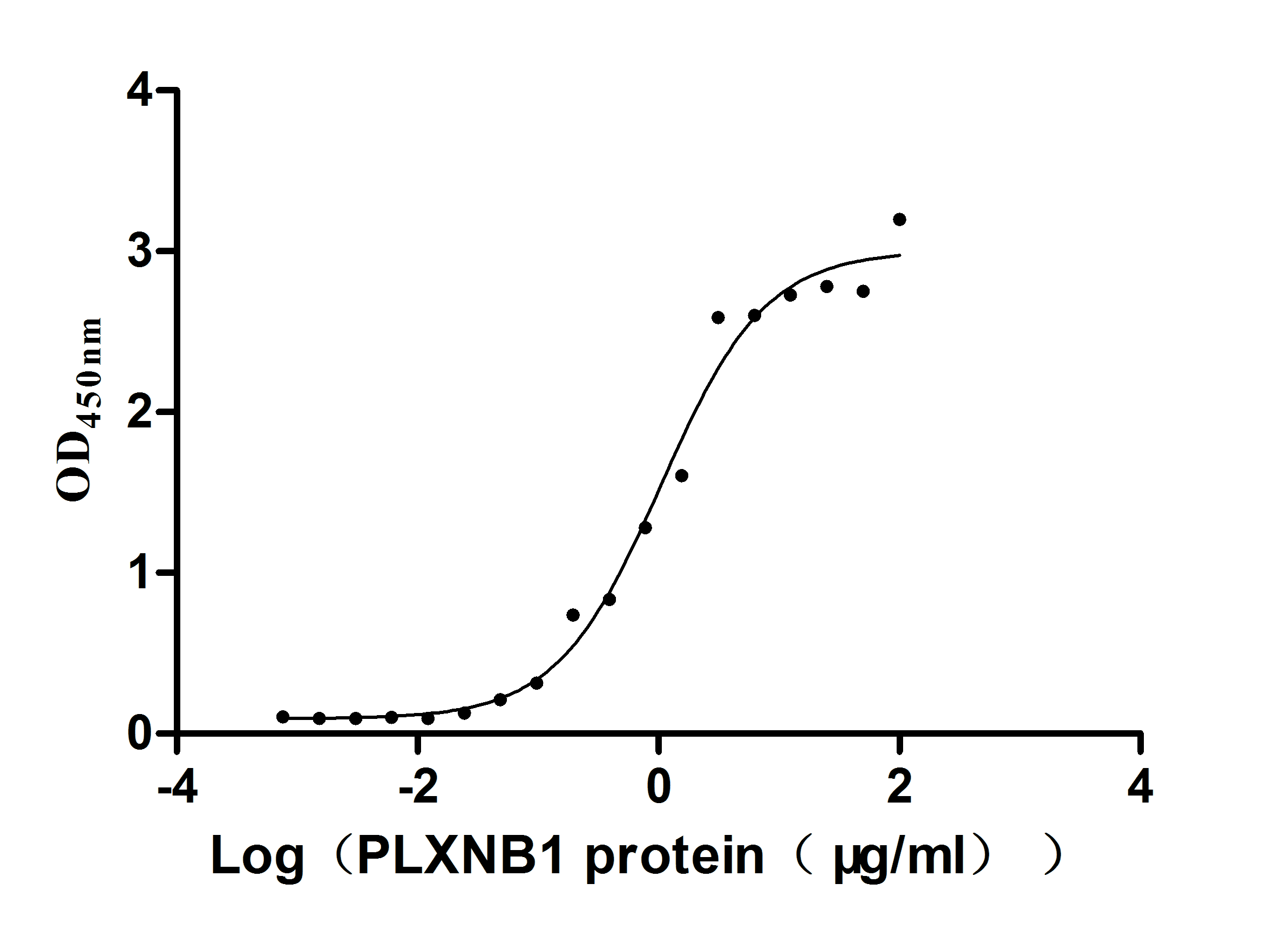
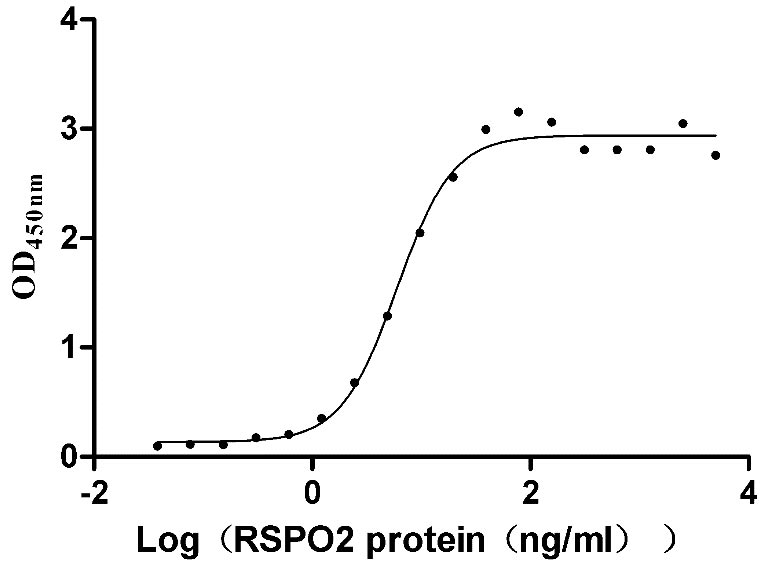
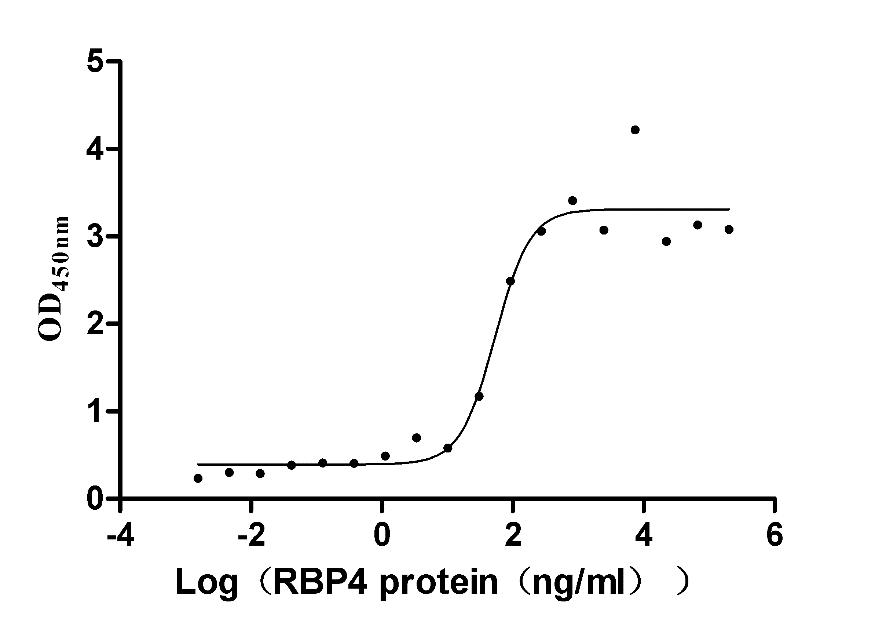
-AC1.jpg)
-AC1.jpg)
